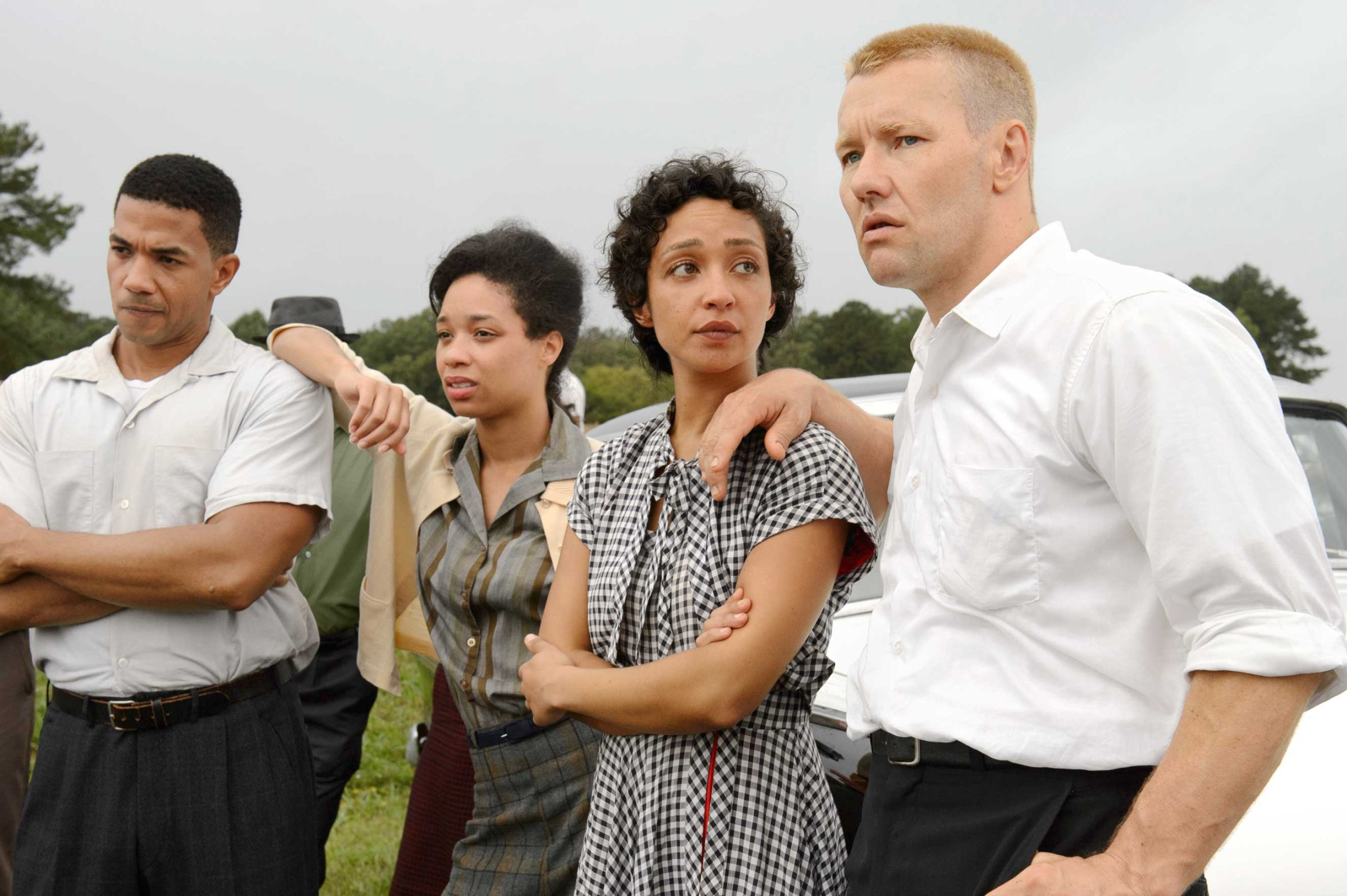
Just last Spring, an Old Navy Twitter ad featuring an interracial family prompted a vicious outcry from social-media trolls who were furious at the store for promoting “race mixing.” A backlash against the backlash followed, with hundreds of Twitter users posting pictures of their interracial families, a ray of hope that Americans can be motivated by their best impulses. Even so, it doesn’t hurt to remember that progressive ideals don’t always take shape as quickly as we’d like–or as quickly as we need. We abolished slavery in 1865, but 100 years later it was still illegal for interracial couples to marry in some states.
Maybe that’s why Jeff Nichols’ beautifully restrained Loving feels less like a historical relic than a vital appraisal of what basic rights mean to actual human beings. Loving tells the story of Richard and Mildred Loving (Joel Edgerton and Ruth Negga), a white man and a woman of color who married in Washington, D.C., in 1958 and returned home to Central Point, Va., only to be arrested for violating antimiscegenation laws. They were sentenced to one year in prison, though the judge would suspend the sentence for 25 years if the Lovings agreed to leave the state. They moved to D.C., but by 1963 they had become frustrated by the restrictions on their lives–they couldn’t travel together to Virginia to visit their families. Mildred wrote a letter to Attorney General Robert F. Kennedy, whose office referred her to the ACLU. The subsequent Loving v. Virginia decision, making interracial marriage legal in all 50 states, was a landmark for civil rights. On a more granular level, it allowed the Lovings to finally live as spouses in their home state.
Nichols (Take Shelter, Midnight Special) makes the Lovings’ story feel immediate and modern by illuminating its simplest elements, like the sight of Richard driving off to his job as a brick mason, not just in another town or county but in another state. In one scene, LIFE photographer Grey Villet (Michael Shannon) arrives to photograph the Lovings as they await an appeal on the ruling that drove them from Virginia. They sit in front of the TV, laughing at The Andy Griffith Show, when Richard sprawls across the couch, dropping his head in Mildred’s lap. Watching from across the room, Villet snaps a picture without peeking through the viewfinder, which might have destroyed the spontaneity. He’s a witness, as we are, to this scene of a couple trying to live a normal life under extraordinary circumstances.
Edgerton’s Richard is reserved and thoughtful, a man more concerned with providing for his family than being a crusader. His quietude isn’t passivity: Edgerton signals, with little more than a bruised glance, his simmering frustration. Negga’s Mildred is a powerhouse. Her face has a sun-brushed brightness, even when life turns out to be harder than she ever dreamed. Her glow doesn’t fade–it just shifts into something stronger and resolute. She appears to have no idea she’s making history, but so often that’s how change begins–in the margins.
The real Mildred Loving died in 2008, 33 years after Richard was killed by a drunk driver. Loving is a ballad in their honor, a song written in pictures and words about what it means to struggle for essentials that no one should have to fight for.
More Must-Reads from TIME
- Donald Trump Is TIME's 2024 Person of the Year
- Why We Chose Trump as Person of the Year
- Is Intermittent Fasting Good or Bad for You?
- The 100 Must-Read Books of 2024
- The 20 Best Christmas TV Episodes
- Column: If Optimism Feels Ridiculous Now, Try Hope
- The Future of Climate Action Is Trade Policy
- Merle Bombardieri Is Helping People Make the Baby Decision
Contact us at letters@time.com